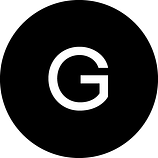The Price of DNA Sequencing Dropped From $2.7 Billion to $300 in Less Than 20 Years
Nebula Genomics is offering access to your entire genetic makeup for less than the price of an Apple Watch
 Genome sequencing was once impossibly expensive. The Human Genome Project, an international effort to decode the human genome that launched in 1990, took 13 years and an estimated $2.7 billion to complete. Then, in 2007, DNA pioneer James Watson became the first person to get his genome sequenced for less than $1 million. Since then, the cost of genome sequencing has been decreasing at a rate faster than Moore’s law.
Genome sequencing was once impossibly expensive. The Human Genome Project, an international effort to decode the human genome that launched in 1990, took 13 years and an estimated $2.7 billion to complete. Then, in 2007, DNA pioneer James Watson became the first person to get his genome sequenced for less than $1 million. Since then, the cost of genome sequencing has been decreasing at a rate faster than Moore’s law.
Now, Nebula Genomics, a spinout of Harvard University co-founded by geneticist George Church, is launching an at-home whole genome sequencing test for less than the price of the latest Apple Watch. At $299, Nebula’s service provides a readout of a person’s entire genetic code.
Nebula’s sequencing is a much more comprehensive test than the ones offered by companies like 23andMe and Ancestry, which use a different technique called genotyping. Genotyping looks at only a small part of the genome. For instance, 23andMe’s $199 health and ancestry test reports on a handful of genetic variants associated with about a dozen health conditions. Sequencing looks at all of a person’s genes and their variants. It’s the difference between reading a few pages versus an entire book.
Nebula’s sequencing is a much more comprehensive test than the ones offered by companies like 23andMe and AncestryDNA.
In 2016, Boston-based Veritas Genetics, also co-founded by Church, was the first company to break the much-hyped $1,000 threshold for genome sequencing. Last year, Veritas slashed that price to $599, crediting automation for the drop. But at the end of 2019, the company abruptly shut down U.S. operations after what the startup called an “unexpected adverse financing situation.”
Today, Nebula is offering even cheaper genome sequencing — and is trying out a new business model. Most other at-home DNA testing companies rely on a one-time purchase. Customers have little reason to continue their relationship with these…
